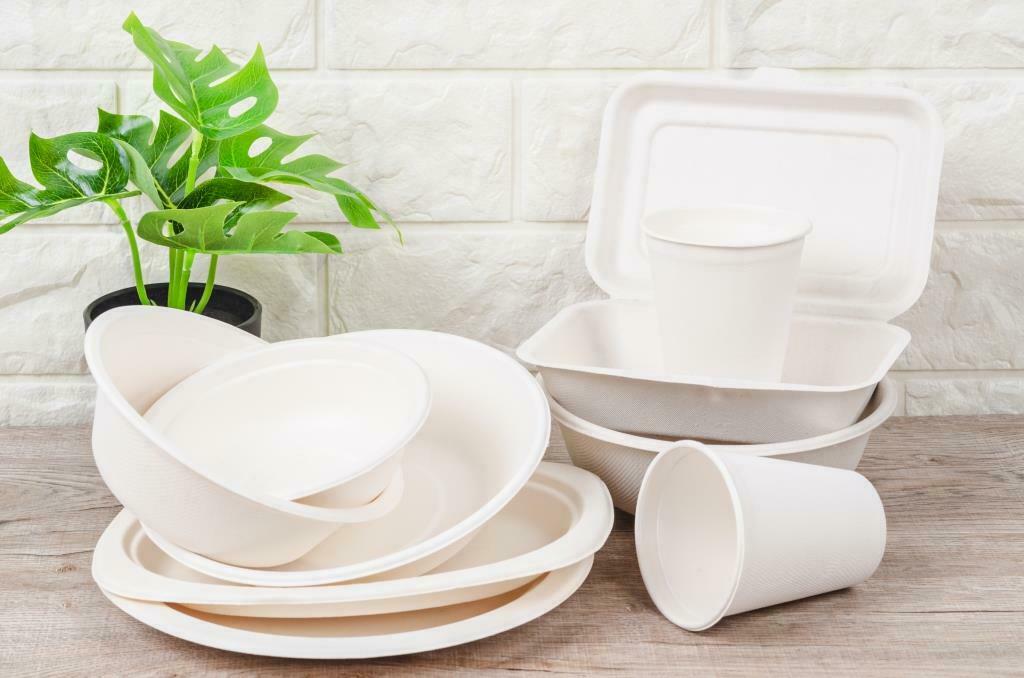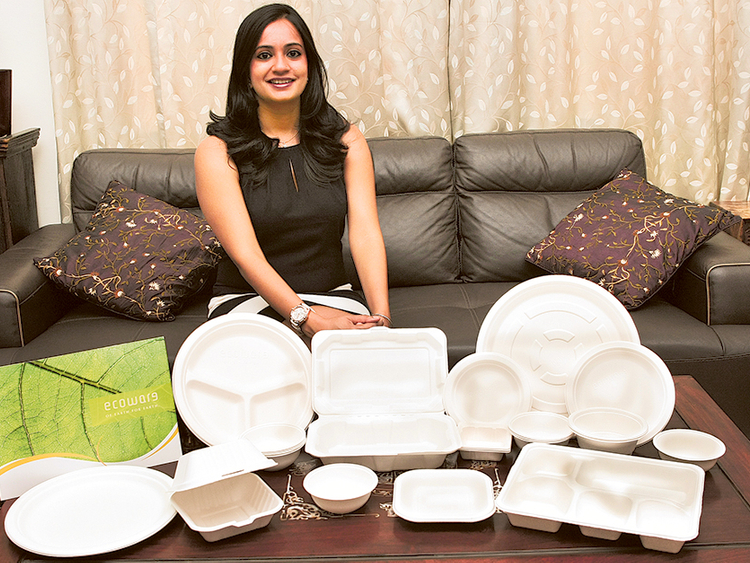Single-use plastic products – things like water bottles, straws, polystyrene plates – have become ubiquitous in our modern lives. Researchers estimate that 300 million tonnes of plastic are produced every year. About half of that is meant to be used only once.
But this doesn’t have to be the case. Just ask Rhea Singhal.
Delhi-based Singhal was just 27 years old when she made a detour in her career to join the fight to beat plastic pollution. Armed with a degree in pharmacology as well as her experience working in marketing for a major pharmaceutical company, Singhal launched her own business, Ecoware, in 2009.
Ecoware: A Brief
The company produces eco-friendly tableware, including plates, cups, bowls, trays, cutlery, and other products. All these products are made from plant biomass and are 100 percent biodegradable. Within a decade, Ecoware has grown to become India’s biggest supplier of compostable eco-friendly tableware.
Singhal’s goal, she says, is both to clean up the natural environment, and to protect human health.
“The health impacts of using non-biodegradable containers are well known,” she says. “If you put hot food in a hot container, you will ingest toxins that will leach out into the food. We talk about healthy lifestyle, healthy eating but what about the container in which we are eating?”
“My mother got breast cancer twice,” she adds. “With my background in pharmacology, I am quite concerned with disease prevention and cancer is close to my heart. You cannot control genetic makeup but you can control risk factors.”
In the right conditions, Singhal’s eco-friendly tableware products convert into soil in just 90 days. That is because all these products are made of sugarcane bagasse, an agricultural waste. But even if an Ecoware plate ends up in a landfill instead of a composting bin, it will still decompose, leaving no waste trail behind.
This range of eco-friendly tableware produced by Ecoware is sturdy too. They can sustain temperatures from minus 20 to 180 degrees. It means that they’re good for freezing and safe in the microwave.
Making a difference
Ecoware is making a difference on a large scale. Today, Singhal’s clients include major restaurant chains and five-star hotels as well as India’s national railway system. The prices of her products are just 15 percent higher than their plastic counterparts.
“In our experience, we have seen people don’t mind paying a bit extra,” says Singhal. “It is not an issue anymore as they understand the health implications and there is a big demand for alternatives. However, the challenge is to generate awareness, to teach people what is good and bad for the environment and their health. But the shift is happening.”
Source: UN Environment









